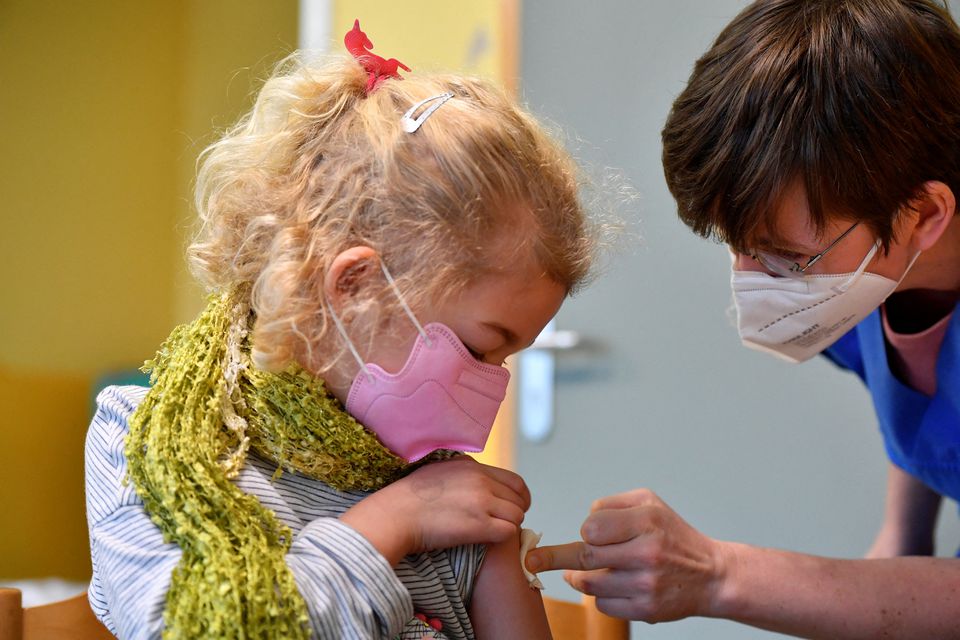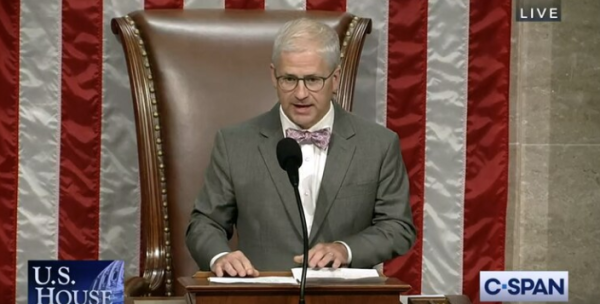
Many parents worry about their children having the Omicron variant, either because they have not been vaccinated because they are young (under 5), or because parents read that even several vaccinated people can get sick if they catch the Omicron.
First of all, let’s clarify – says Elias Mosialos, Professor of Health Policy at the London School of Economics (LSE) – that contracting Omicron after vaccination does not necessarily mean that it will develop into a serious illness. This is shown by the epidemiological data from the countries where the Omicron variant was widely observed earlier. The majority of those who will get the disease will have mild symptoms, while a significant percentage (30% based on studies in South Africa) will be asymptomatic.
What happens to children
But let’s look at the evidence for Omicron’s impact on children. You may have noticed that several countries report higher rates of children being treated as the Omicron spreads, compared to the Delta variant. Evidence suggests that babies may also be admitted to hospital.
However, the analysis of the British data, and compared to previous variants, shows that Omicron causes less serious disease in children who will get sick. This is further supported by a new South African analysis of childcare.
Maybe it’s good to explain the difference in the scale of imports. That is, as we have a very high number of infections due to the very high transmissibility of Omicron, it makes sense to have a higher number of imports. In other words, the increase in admissions simply describes the current burden on hospitals and not necessarily the hospitalization of children due to serious symptoms.
Let me also remind you that in both England and South Africa, children under the age of 12 are not vaccinated. At the same time, do not forget that very young children have been exposed to a much smaller number of infections. Thus, they do not even have high rates of cross-immunoprotection having been diagnosed with previous infections with other variants of the coronavirus.
It has also not been confirmed that the Omicron variant can cause more severe symptoms in children, compared to previous variants. But looking at the data from the admissions, most of the children admitted to the hospital are not as seriously ill as those admitted during the previous waves.
But what do we know about the number of admissions, the intensity and the duration of the hospitalization of the children who contracted Omicron?
An analysis of around 140 hospitals across the UK shows that of those who were treated with Omicron and were under 17 years old, about 42% were under one year old, compared with 30% in previous waves (data by Isaric).
42% refers to imported cases from mid-December to mid-January. As in South Africa, the United Kingdom observed that children who were hospitalized needed oxygen less frequently than children who were sick with the Delta variant.
However, from the data from England, we also learn that in the age group 2-17, 20 children were hospitalized in the intensive care unit, all of whom were unvaccinated.
Pediatric admissions in England had a shorter duration of hospitalization (less than two days on average) compared to, for example, the first wave of children being hospitalized for about a week. Also, data from NHS England, which analyzed about 50 cases of infants admitted with coronavirus, show that they rarely needed oxygen. For example, only 11% of children under one year of age needed oxygen, compared with about 20% in previous waves.
In fact, more than half of the babies stayed in the hospital to monitor their progress and needed no treatment at all.
But let me mention here that the instructions for admitting someone to the hospital are different by age and how they differ for babies with fever. So let us not forget that when we talk about increased admissions we must compare both the symptoms and the duration of hospitalization, but also whether they needed treatment. For the time being, data from England for very young children show a mild symptom, possibly with a fever and cough.
For example, let’s look at the respiratory syncytial virus (RSV), a very common virus that infects many infants and young children. This virus can cause higher admission rates in children under 5 years of age if we compare them to the incidence rates currently induced by Omicron in England in this age group.
The image we have of mild infections in children are different in New York State. There, a relatively higher number of admissions of children has been recorded, especially in those under 4 years old, compared to the previous waves. The preliminary health report states that “the potentially increased severity of the Omicron variant may also play a role in increasing hospitalization rates in children ≤11 years of age, compared with adults and children 12-17 years of age.” However, so far this analysis is based only on total admissions, not on how many children needed treatment, such as respiratory support.
I will close with some data from a recent meta-analysis on the long-term COVID syndrome (doi.org/10.1016/j.bbi.2021.12.020). It seems that children, if they get sick, have fewer long-term effects of fatigue compared to adults. Also, it seems that there was no significant effect of the infection on a cognitive level in children who became ill (while it was present in adults).
Finally, it is important to remember that vaccines are safe for pregnant and breastfeeding mothers and that we have evidence that antibodies are passed on to infants and through breastfeeding.
Let us all try to actively protect our own people, of all ages.
Latest News

Airbnb: Greece’s Short-Term Rentals Dip in March Amid Easter Shift
Data from analytics firm AirDNA shows that average occupancy for short-term rentals dropped to 45% in March, down from 49% the same month last year.

Easter Week in Greece: Holy Friday in Orthodoxy Today
At the Vespers service on Friday evening the image of Christ is removed from the Cross and wrapped in a white cloth

Meloni and Trump Meet in Washington, Vow to Strengthen Western Ties
“I am 100% sure there will be no problems reaching a deal on tariffs with the EU—none whatsoever,” Trump stressed.

ECB Cuts Interest Rates by 25 Basis Points in Expected Move
The ECB’s Governing Council opted to lower the deposit facility rate—the benchmark for signaling monetary policy direction—citing an updated assessment of inflation prospects, the dynamics of underlying inflation, and the strength of monetary policy transmission.

Current Account Deficit Fell by €573.2ml Feb. 2025: BoG
The improvement of Greece’s current account was mainly attributed to a more robust balance of goods and, to a lesser extent, an improved primary income account

Hellenic Food Authority Issues Food Safety Tips for Easter
Food safety tips on how to make sure your lamb has been properly inspected and your eggs stay fresh.

Greek Kiwifruit Exports Smash 200,000-Ton Mark, Setting New Record
According to data by the Association of Greek Fruit, Vegetable and Juice Exporters, Incofruit Hellas, between September 1, 2024, and April 17, 2025, kiwifruit exports increased by 14.2%.

Easter Tourism Boom: Greece Sees 18.3% Surge in Hotel Bookings
Among foreign markets, Israel has emerged as the biggest growth driver, with hotel bookings more than doubling—up 178.5% year-on-year.

Greece to Launch Fast-Track Tender for Offshore Hydrocarbon Exploration
Last week, Papastavrou signed the acceptance of interest for the two Cretan blocks, while similar decisions regarding the two Ionian Sea blocks were signed by his predecessor

American-Hellenic Chamber of Commerce to Open Washington D.C. Branch
AmCham's new office aims aims to deepen U.S.-Greece economic ties and promote investment and innovation between the two countries







![Πλημμύρες: Σημειώθηκαν σε επίπεδα ρεκόρ στην Ευρώπη το 2024 [γράφημα]](https://www.ot.gr/wp-content/uploads/2025/04/FLOOD_HUNGRY-90x90.jpg)




![Airbnb: Πτωτικά κινήθηκε η ζήτηση τον Μάρτιο – Τι δείχνουν τα στοιχεία [γράφημα]](https://www.ot.gr/wp-content/uploads/2024/07/airbnb-gba8e58468_1280-1-90x90.jpg)

























![Airbnb: Πτωτικά κινήθηκε η ζήτηση τον Μάρτιο – Τι δείχνουν τα στοιχεία [γράφημα]](https://www.ot.gr/wp-content/uploads/2024/07/airbnb-gba8e58468_1280-1-600x500.jpg)


 Αριθμός Πιστοποίησης
Αριθμός Πιστοποίησης